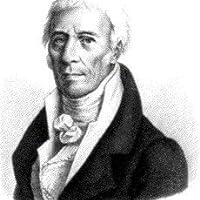
Jean-Baptiste Lamarck
关于作者
Jean-Baptiste Lamarck was a French naturalist best known for his early contributions to the theory of evolution. He was a pioneer in the study of invertebrates and made significant strides in the classification of living organisms. His most notable works include "Zoological Philosophy" and "Histoire naturelle des animaux sans vertèbres," where he articulated the idea that organisms adapt to their environments over time, laying groundwork for future evolutionary theories. Lamarck proposed that traits acquired during an organism's lifetime could be passed on to its offspring, a concept known as Lamarckism, which, although largely discredited today, was influential in the development of evolutionary biology.
Throughout his career, Lamarck faced substantial challenges, including the skepticism of his contemporaries and the lack of empirical evidence to support his theories. Nevertheless, his ideas paved the way for the acceptance of evolution as a scientific fact and inspired future naturalists, including Charles Darwin. Despite being overshadowed by his successors, Lamarck's legacy endures as a foundational figure in the history of biology, particularly for his innovative thoughts on adaptation and classification.